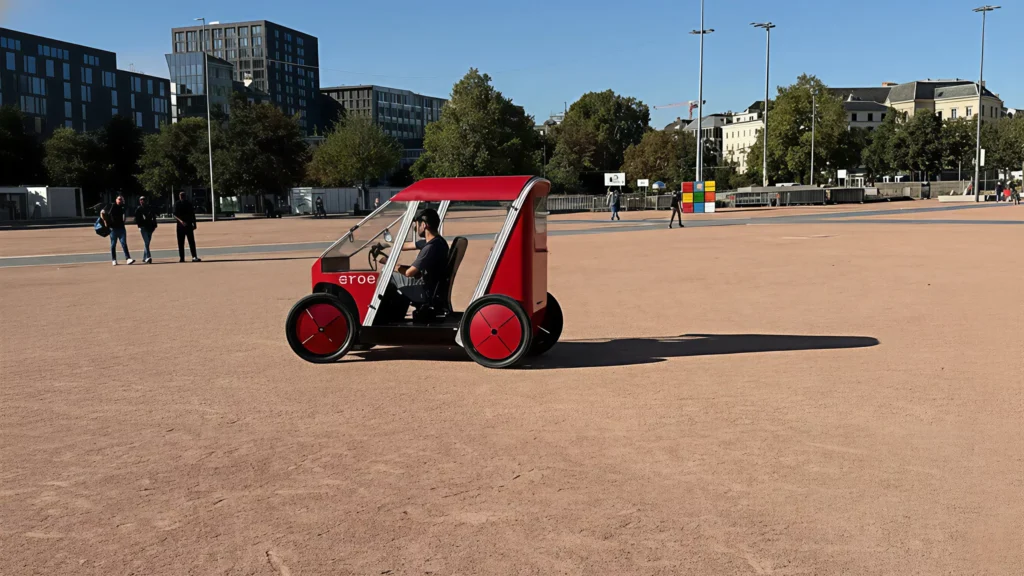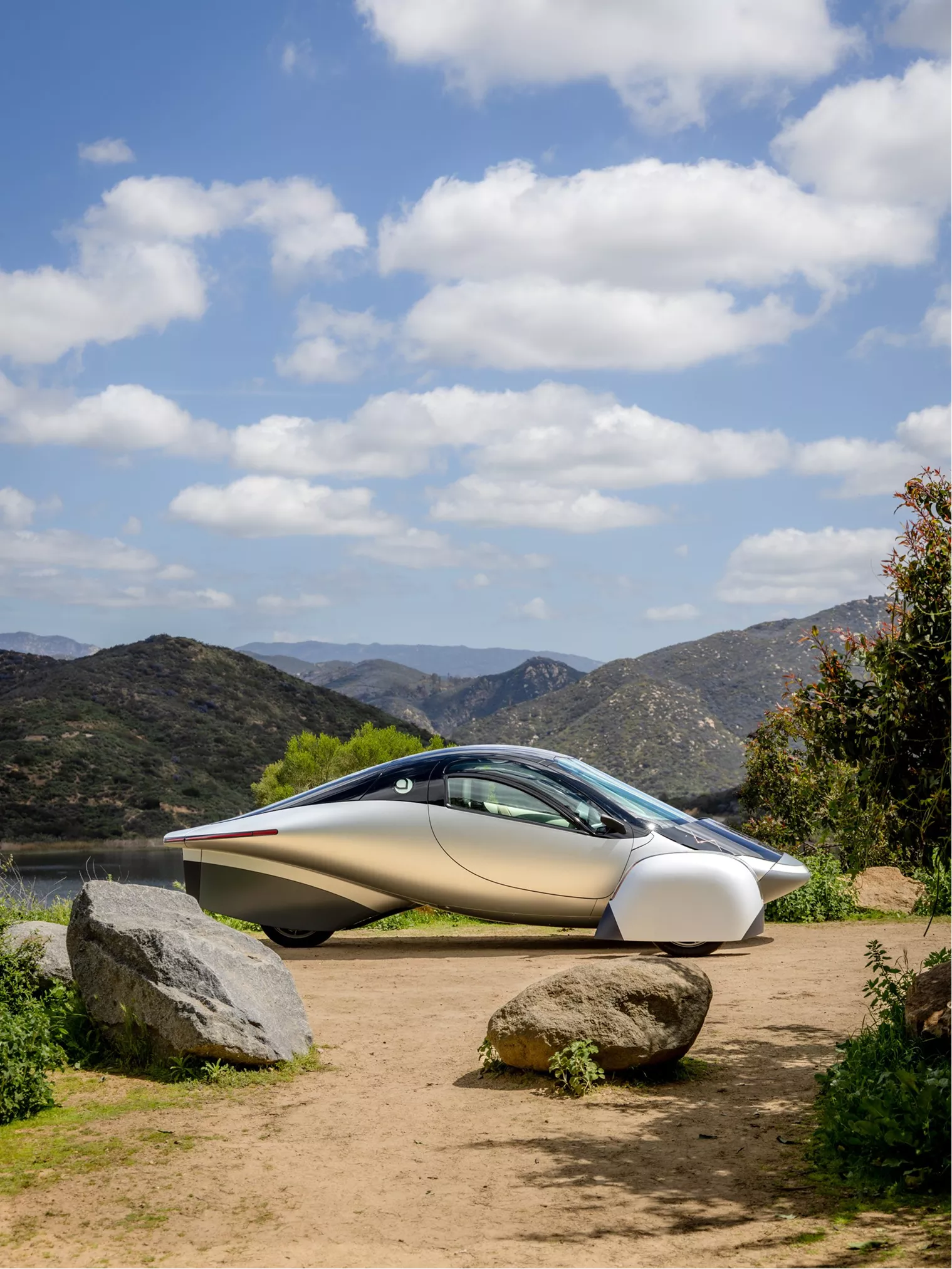






From EVs and batteries to autonomous vehicles and urban transport, we cover what actually matters. Delivered to your inbox weekly.
2025 is shaping up to be a banner year for electric vehicles in Europe. From Berlin to Barcelona, EVs are quickly becoming the norm. Battery electric vehicle sales are surging. Infrastructure is scaling. Regulations are tightening. The entire industry is shifting gears at a rapid pace.
But while the European EV market accelerates, Tesla is spinning out. Once the face of the movement, the company is now watching rivals take the lead across nearly every major market.
This is a story about how Europe outgrew its early dependence on Tesla and built a thriving, increasingly domestic EV industry. And about what happens when one automaker fails to read the room.
The stats tell the story. BEV sales in Europe climbed 28% year-over-year in Q1 2025, hitting 570,943 units — a new quarterly record. Battery electrics grabbed a 17% share of the entire passenger car market, up 3.7 percentage points from the year before.
The momentum held strong into April, with BEV registrations up 26.4% compared to April 2024.
Analysts now value the European EV market at $319 billion in 2025, with forecasts pointing toward $636.57 billion by 2029. That’s an 18.85% compound annual growth rate.
Policy is the backbone: EU emissions regulations, national incentive schemes, and billions in infrastructure investment are driving demand and supply simultaneously.
While the broader European EV market is booming, Tesla is in reverse. In April 2025, Tesla’s sales across the European Union dropped by 53% year-over-year. Including the UK, Switzerland, and Norway, the broader regional drop hit 49%.
And it seems this is becoming a trend. Tesla’s sales have fallen nearly 40% across the first four months of the year. In country after country, the numbers paint the same picture:
The one exception is Norway, where Tesla sales surged 213% in May.
But context matters. The spike was driven by heavy discounts, zero-interest financing on the Model Y, and a weak 2024 base.
There are three key reasons we need to examine.
Tesla’s biggest problem isn’t price or product. It’s perception. CEO Elon Musk’s public alignment with Donald Trump, endorsement of Germany’s AfD party, and increasing political provocations have alienated large swaths of European buyers.
In Germany, 94% of consumers surveyed in March 2025 said they would not consider buying a Tesla. The backlash has been public and visible, manifesting in protests at Tesla stores, social media boycotts, and an avalanche of negative press.
Musk’s politics aren’t the only issue. Tesla’s long-promised Model Y update, codenamed “Juniper,” has faced delays. In the meantime, rivals have caught up, or surpassed, Tesla on build quality, design, and after-sales support.
Customers are increasingly frustrated with service wait times, inconsistent quality, and a lack of real dealership infrastructure.
European buyers want affordability and access. Tesla isn’t delivering either. There’s no real sub-€30,000 model. Service coverage is patchy outside major cities. And while rivals localize aggressively, Tesla still tries to sell one-size-fits-all vehicles to a fragmented, highly differentiated market. It’s not working.
As Tesla stumbles, competitors are taking control.
Volkswagen Group is now the dominant EV force in Europe. In Q1 2025, the group delivered over 150,000 electric vehicles — a 113% year-over-year increase. In Germany, nearly one out of every two EVs sold now comes from a VW-owned brand.
BMW recorded 21% growth with 46,557 EVs sold in Q1. Its premium appeal is resonating with buyers seeking performance without the baggage of controversy.
Audi, also under the VW umbrella, jumped 51% in the same period, driven by new model launches and strong brand trust.
Renault surged 89% in Q1, fueled by a reinvigorated electric lineup and strong domestic demand in France. Its EV revival is one of the most significant stories in European mobility.
BYD, the Chinese giant, beat Tesla in BEV sales across Europe in April — 7,230 to Tesla’s 7,165. That’s before counting its hybrid sales, which push BYD’s total to 12,525. The Dolphin Surf starts at just €23,000, undercutting most rivals. Despite incoming EU tariffs, Chinese-brand EV registrations rose 59% year-over-year in April. BYD’s momentum is real.
This is no longer Tesla vs. the world. It’s a fully competitive, multi-polar market.
Europe’s EV growth is built on policy, product diversity, and infrastructure. Automakers that understand regional preferences, offer affordable models, and stay out of political crossfire are winning.
Tesla’s early dominance has been eroded by its inability, or more accurately, its refusal, to localize. Today’s EV buyer in Europe wants three things: trust, access, and value. Tesla is struggling to offer any.
Tesla’s declining performance across the region reflects a broader shift in Europe’s electric vehicle market toward localization, policy alignment, and diversified competition. Once seen as the primary catalyst for EV adoption, the company now faces growing challenges in maintaining relevance.
European markets are moving forward with or without Tesla. Stronger local offerings, continued policy support, and maturing infrastructure have enabled a broad range of manufacturers to expand their presence. Cultural and political misalignment has only accelerated Tesla’s retreat.
2025 marks a pivotal year in signaling the end of EV exceptionalism. The focus now is on long-term integration of electric vehicles into the wider mobility ecosystem.